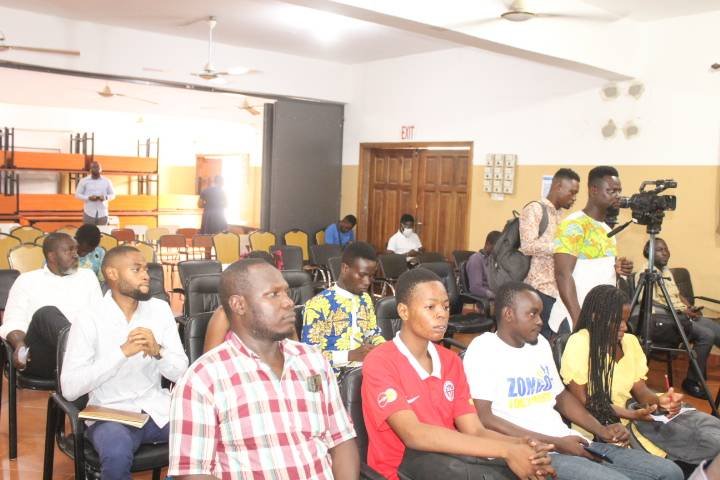
By Juliet ETEFE ([email protected])
Access to tailored funding, harmonised regulations and technical capacity remains critical to turning Ghana’s circular economy innovations into viable businesses, experts have underscored.
Marindame Kombate Executive Director of the Ghana Circular Economy Centre (GCEC), noted that the country has seen promising innovations across renewable energy, waste management and other secular economy sectors.
However, there have been gap between innovative solutions and their translation into viable businesses, and access to finance remains one of the biggest constraints.
“Good ideas alone are not enough. For meaningful transitions to happen, finance must follow ambition. Our goal is to turn opportunities from papers and labs into real investments that generate tangible impact,” Dr. Kumbate said.
Findings from GCEC’s ongoing study on circular economy financing intended to assess financial institutions’ technical, financial and institutional capacities to support CE enterprises also showed that awareness of circular economy principles remains low, particularly among lower-tier banks.
It noted that while awareness of circular economy principles is slowly growing among banks and financial institutions, uptake remains low due to perceived risks and limited understanding of CE business models.
The research also highlighted barriers for youth and women-led enterprises, including collateral requirements and weak institutional integration of gender- and youth-focused financing.
“Our preliminary recommendations include mainstreaming circular economy principles into financial regulations, incentivised prudential measures, linking certification to regulatory benefits and strengthening capacity-building initiatives across the ecosystem…from SMEs to banks,” Babilo Mahama, an Environmental, Social and Governance expert, said.
A panel discussion further underscored the role of collaboration between governments, financial institutions and technical support agencies in scaling circular businesses.

Speaking on a panel on the topic ‘Financing the Circular Economy in Ghana: From Opportunities to Investments’, a side event at the West Africa Clean Energy & Environment Trade Fair & Conference (WACEE’25), Bonmwa Fwangkwa, Manager for the African Circular Economy Alliance (ACEA) at the African Development Bank, highlighted the importance of harmonised standards.
She cited the recent proposal of continental standard for recycled PET bottles as a breakthrough for enabling cross-border trade and justifying investments in recycling infrastructure.
“Standards are a crucial piece of the puzzle,” Ms. Bonwah said.
Stephen Essien, Head of Consumer Banking at CalBank Ghana, noted the evolving role of sustainable finance in Africa, stressing that banks now evaluate circular economy ventures as profitable businesses rather than CSR projects.
As such, he advised that “enterprises need to demonstrate profitability, sound business models and repayment capacity,” adding that positioning circular businesses as viable ventures is essential to secure financing.
“Sustainable finance has moved from corporate social responsibility to profitability. Banks now want businesses to demonstrate a viable model that ensures repayment and profit. Circular economy enterprises must position themselves as business ventures, not charity projects,” he noted.
Letitia Abra-Kom Nyaaba, Acting Director of the Ghana National Cleaner Production Centre, reiterated that circularity must be embedded in core business strategy.
She highlighted challenges SMEs face in accessing financing despite multiple audits and capacity-building support, and pointed to local innovations, including self-fabricated equipment, as examples of how businesses can reduce costs and improve efficiency.
Panelists agreed that harmonised policies, regulatory incentives and technical support are essential to turn innovative solutions into scalable, financially viable businesses, especially for women- and youth-led enterprises.
The post Financing, standards and policy key to scaling circular economy- experts appeared first on The Business & Financial Times.
Read Full Story



















Facebook
Twitter
Pinterest
Instagram
Google+
YouTube
LinkedIn
RSS